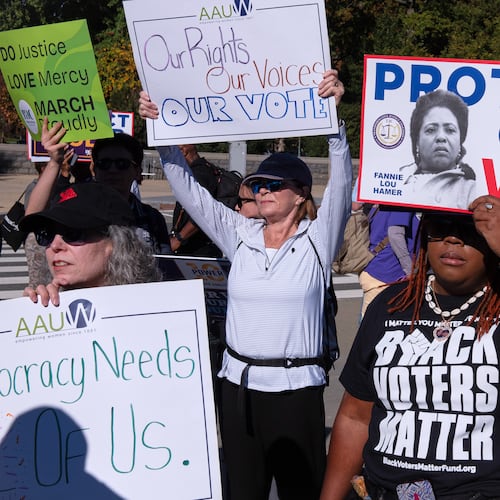Since the launch of Bill Gates’ annual letter last week, discussion has reopened an old debate among experts about whether the final push to eradicate polio is possible, or even worth the effort.
Some believe that the effort to fight polio should be “downsized” to a control program — one that simply aims to keep the disease at bay by limiting its reach. But as doctors and scientists who worked together to eradicate polio in the Americas, we know that the global eradication of polio is imminently achievable — and that giving up now, with 99 percent of the disease eliminated, would be nothing short of a tragedy.
To many, the cost of eradicating polio by 2013 — which experts put at $2 billion — sounds prohibitive, particularly in financially uncertain times. Even after generous contributions from the Bill & Melinda Gates Foundation and other global donors, estimates indicate there remains a $720 million funding gap to get the job done.
To be sure, simply controlling polio — or limiting its reach — would mean lower costs in the short term. But there is ample evidence to suggest that taking this approach could have devastating — not to mention prohibitively expensive — long-term consequences.
Scores of children will continue to become paralyzed or die from a fully preventable disease. Perhaps even more terrifying, however, is the fact that that polio can, has, and will continue to re-emerge in areas where the disease had been eliminated — putting many more lives at risk and turning back the clock on the progress that has been made to date.
In one example from 2003, a scare that caused a sizable dip in the administration of polio vaccine in northern Nigeria triggered outbreaks in 20 surrounding countries, most of which had long since eradicated the disease.
There is also a moral imperative. People cannot accept the notion that it will be all right to have paralyzed kids in some of the poorest communities of the world. We must maintain the commitment that polio is totally preventable and unacceptable anywhere in the world.
In countries where polio has been eradicated, the investments made to strengthen the health system to support vaccination have done double-duty, paving the way for children to receive other important childhood immunizations.
As a result, millions of children have been able to receive new vaccines, reducing the number of deaths from other preventable illnesses and ultimately maximizing the value of the investment. Polio prevention has the potential to be the catalyst that strengthens the health system infrastructure in countries that need it most, helping them meet Millennium Development Goals for a two-thirds reduction in child deaths.
But adequate funding to continue the polio eradication initiative is key. The recent support of Bill Gates is a testament to the type of financial commitment required to eradicate this disease.
But no one donor or philanthropist will be able do it alone. Renewed financial commitments from donor governments including the United States, and political will from leaders in the developing world, are critical to continue the national immunization days in countries that continue to combat polio or are at high risk of unwittingly “importing” the disease.
In 2010, thanks to a renewed commitment from donor countries, polio cases were reduced to just 946 worldwide. By using the surveillance and containment strategies that helped us wipe smallpox from the face of the planet in 1979, we have the power to write the headstone on a disease that has taken millions of lives.
The tools needed to stop polio in its tracks and give children a basic human right to good health are ready and available. We are so close. We must stop polio now.
Dr. Jon Kim Andrus is the deputy director of the Pan American Health Organization.
Dr. Ciro A. de Quadros is the executive vice president of the Sabin Vaccine Institute.
About the Author
Keep Reading
The Latest
Featured
